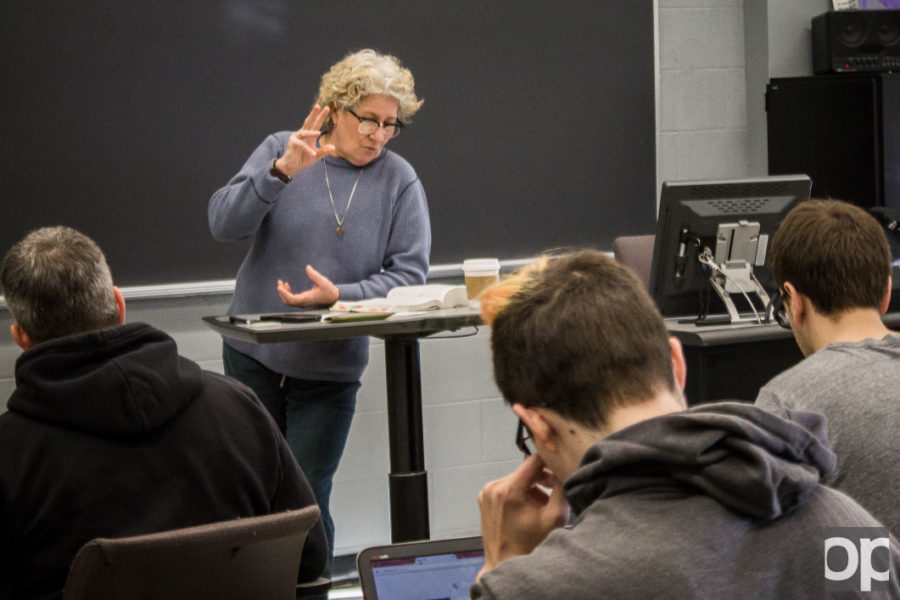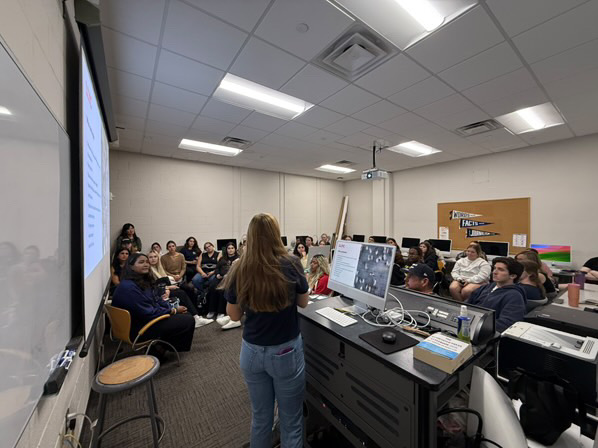Three absences don’t make an A
Different types of classes have different attendance policies as well as other policies determined by the professors.
Some students may sleep through their alarm, have car trouble or even just be so tired they can’t pull themselves out of bed. In this case, they can’t make it to class. Whether or not they are affected by their professor’s attendance policy depends on various factors.
Different types of classes have different attendance policies as well as other policies determined by the professors.
In general, many classes at Oakland University allow two unexcused absences before being penalized. However, this policy varies because some professors do not bother to take attendance, but instead have their own way of enforcing it.
Usually, due to the large number of students, lecture halls do not have attendance policies. However, it is still in students’ best interests to attend class, since there are alternative ways grades can be affected if a student does not attend.
“I teach very large classes so it’s impossible to take attendance,” OU professor Kapila Castoldi said.
Over the years, Castoldi has changed her teaching style in order to motivate students to attend class.
“I’ve flipped the classroom and reduced the lecturing and introduced in-class activities,” Castoldi said. “The activities are a good component of the course grade, so the students are forced to come to class.”
These alternative ways of getting students to come to class seem to work for most professors because students want to receive the grade they think they deserve.
“I always give extra bonus points for regular attendance,” professor Henri Gooren said. “I find that all students love the extra bonus points for regular attendance and active participation.”
Whether a class is taught in a huge lecture hall or a smaller classroom, most professors still believe attending class is beneficial for students, not just their grades.
“The importance of attending class springs from the purpose in taking the class,” professor Gina Zasadny said.
Zasadny believes that lectures and classroom activities “serve to enlighten, clarify, enhance and supplement whatever material is an essential part of a particular class.”
“Otherwise, formal class time would be deemed irrelevant and it would simply be replaced with textbooks,” Zasadny said. “Such an alternative would result in ill-prepared students struggling to graduate.”
Simply reading a textbook outside of class rather than hands-on learning is not what many professors have in mind when it comes to being successful within a college course.
“Being exposed to a subject in a number of different ways helps,” Castoldi said. “Hands-on activities, for example, challenge the student to confront the reality and be able to apply that knowledge. Reading the textbook, attending the lecture, participating in in-class activities is of utmost importance for the learning process.”
Students and professors see attendance differently in many cases, as students do not feel that they should be forced to come to each lesson.
“Attendance should not be mandatory,” senior Nick Dado said. “We are the ones paying for the classes and are capable of making our own decisions. If we choose not to go to class it should be our responsibility as students to get caught up.”
Whether students get away with skipping class and get by, or fall behind and fail, many still feel it should be their choice.
“Skipping classes may hurt your grades, however, we pay for these classes out of our own pocket,” student Jon Sulek said. “We are aware of the consequences if we choose not to attend class.”











